
Find Help
More Items From Ergsy search
-

What is the sugar tax in the UK?
Relevance: 100%
-
Is the sugar tax applied to diet or zero sugar drinks?
Relevance: 96%
-
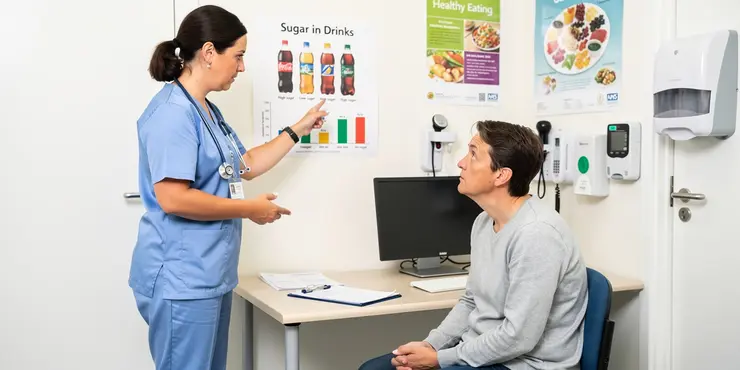
Has the sugar tax affected the sugar content in drinks?
Relevance: 96%
-

Who pays the sugar tax?
Relevance: 96%
-

What is the purpose of the sugar tax?
Relevance: 95%
-

What are the long-term goals of the sugar tax?
Relevance: 91%
-

Has the sugar tax been effective?
Relevance: 91%
-

Which drinks are exempt from the sugar tax?
Relevance: 89%
-

Does the sugar tax apply to small businesses?
Relevance: 88%
-

How does the sugar tax affect consumers?
Relevance: 88%
-

How is the revenue from the sugar tax used?
Relevance: 88%
-
How much revenue has the sugar tax generated?
Relevance: 85%
-

Has the sugar tax led to innovation in the drinks industry?
Relevance: 84%
-
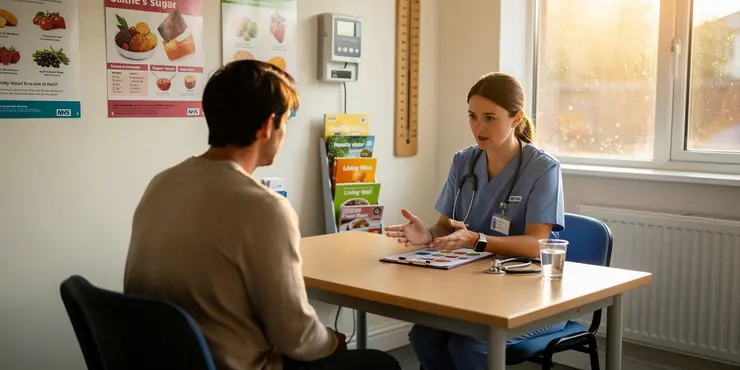
How does the sugar tax align with public health strategies?
Relevance: 83%
-

What impact has the sugar tax had on obesity rates?
Relevance: 82%
-
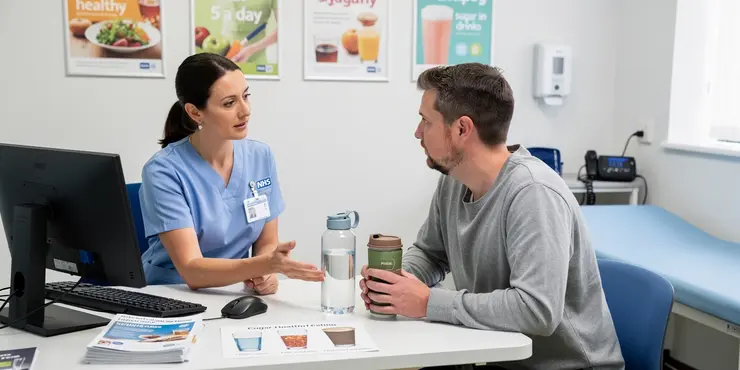
When was the sugar tax introduced in the UK?
Relevance: 72%
-
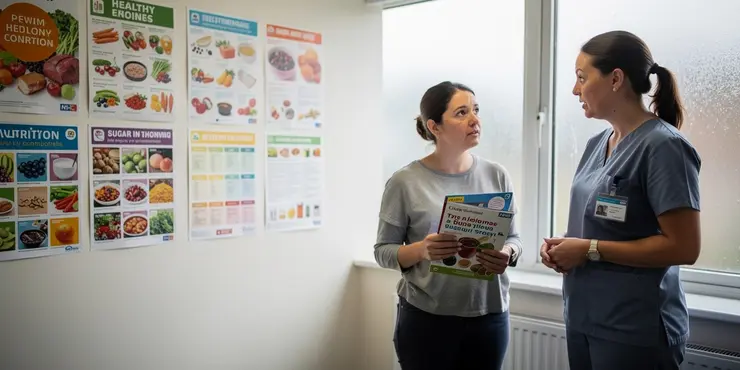
What are the rates for the sugar tax?
Relevance: 72%
-

How is the sugar tax applied?
Relevance: 72%
-
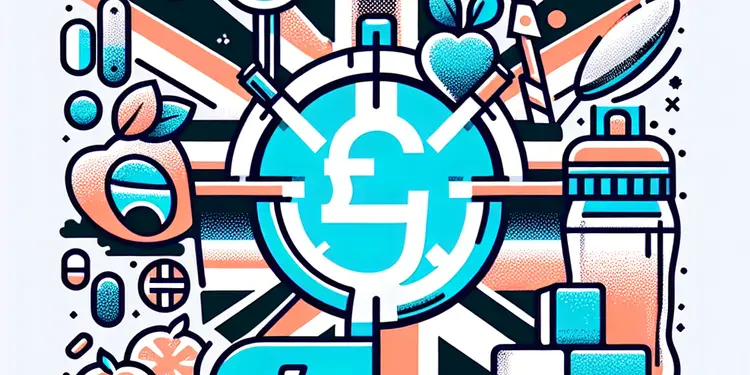
Are sugar substitutes healthier than regular sugar?
Relevance: 62%
-
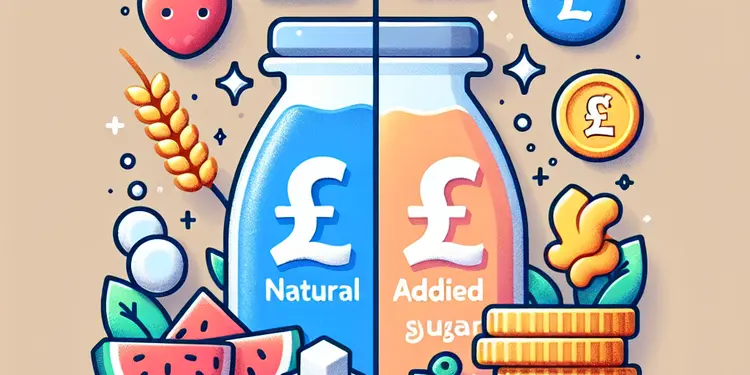
What is the difference between natural sugar and added sugar?
Relevance: 60%
-

Have any other countries implemented a sugar tax similar to the UK?
Relevance: 60%
-

What is the 'sugar crash'?
Relevance: 59%
-
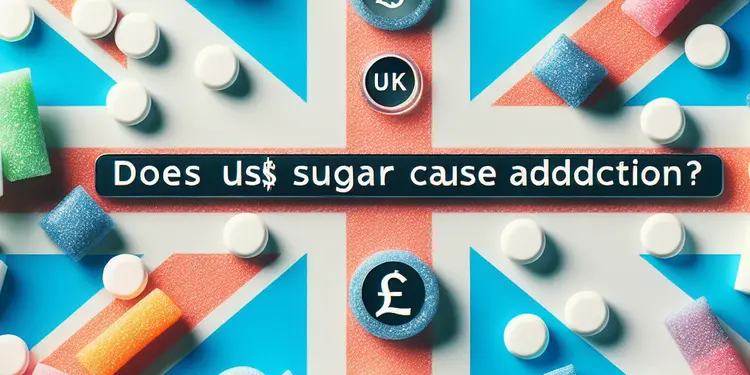
Does sugar cause addiction?
Relevance: 56%
-

Can I have sugar if I am diabetic?
Relevance: 56%
-
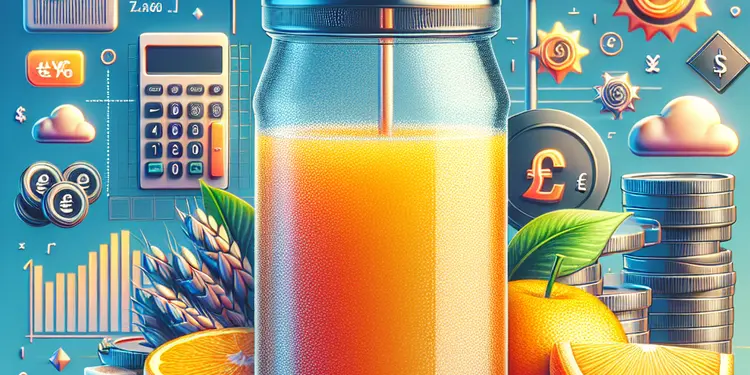
Is orange juice high in sugar?
Relevance: 56%
-

Is honey a better alternative to sugar?
Relevance: 55%
-
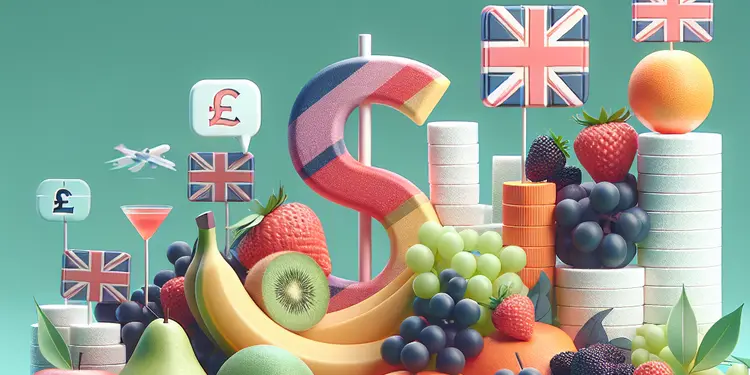
Is the sugar in fruit bad for you?
Relevance: 55%
-
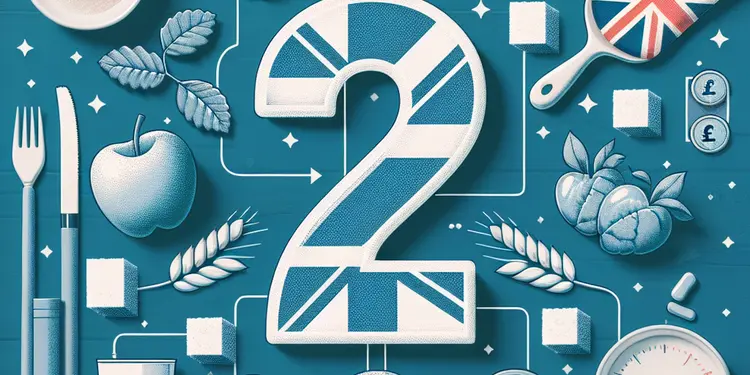
What is the role of sugar in a balanced diet?
Relevance: 54%
-

Why is it important to limit sugar intake?
Relevance: 53%
-

How can I reduce my sugar intake?
Relevance: 53%
-
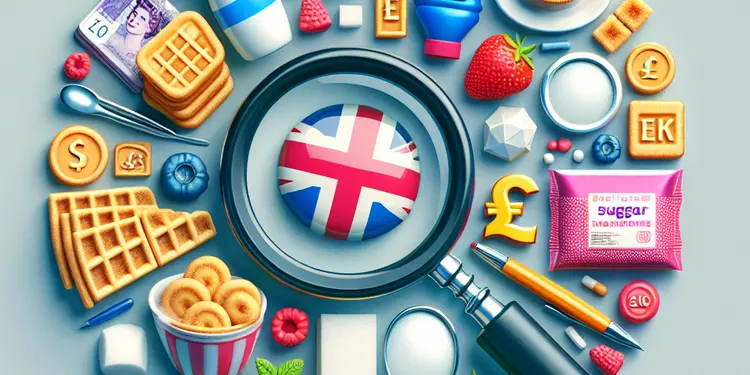
How do I determine how much sugar is in a product?
Relevance: 52%
-
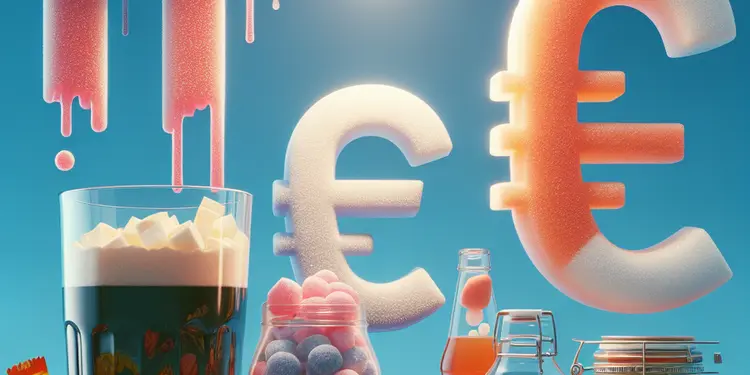
What are 'free sugars' and why should they be limited?
Relevance: 52%
-
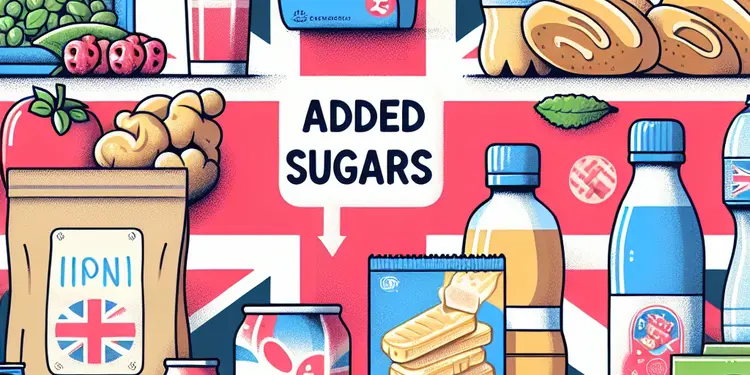
What are some hidden sources of added sugars?
Relevance: 52%
-

What is the recommended daily sugar intake for adults?
Relevance: 52%
-

How does sugar affect my energy levels?
Relevance: 51%
-

How does sugar impact mental health?
Relevance: 51%
-

How much sugar should I eat every day?
Relevance: 50%
-
Are there any criticisms of the sugar tax?
Relevance: 50%
-
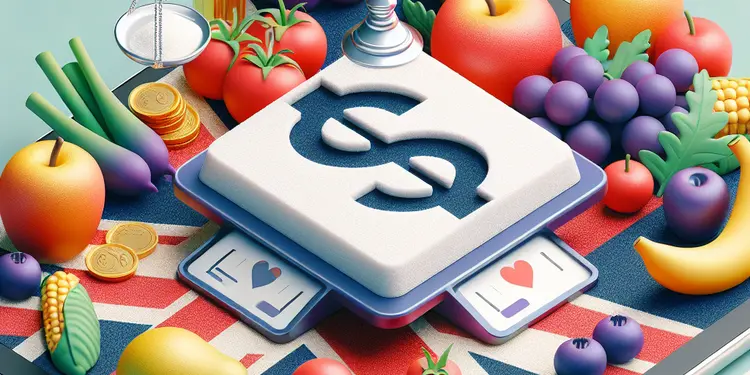
Can reducing sugar intake aid weight loss?
Relevance: 50%
-

Can Baxdrostat affect blood sugar levels?
Relevance: 49%
Introduction to the Sugar Tax
The sugar tax, officially known as the Soft Drinks Industry Levy, is a regulation implemented by the UK government aimed at reducing the consumption of sugary drinks. Introduced in April 2018, the policy targets manufacturers with the intent of encouraging them to decrease the sugar content in their beverages or face financial penalties.
The Objective of the Sugar Tax
The primary objective of the sugar tax is to combat rising obesity rates, particularly among children. By imposing this levy, the government hopes to incentivize companies to reformulate their products to contain less sugar. The revenue generated from this tax is intended to support health initiatives and programs aimed at improving overall public health.
How the Sugar Tax Works
The sugar tax is structured as a two-tier levy applied to manufacturers of soft drinks. Drinks containing 5 to 8 grams of sugar per 100 milliliters incur a lower tax rate, while those with more than 8 grams per 100 milliliters are taxed at a higher rate. Notably, milk-based drinks and fruit juices are exempt from this levy.
The tax is not directly charged to consumers but to producers, importers, and bottlers of sugary drinks. This approach encourages companies to reformulate their products to avoid the tax and potentially lower the sugar levels in their beverages.
Impact and Changes Since Implementation
Since the implementation of the sugar tax, many beverage companies in the UK have adjusted their recipes to reduce sugar content in their products. This shift has led to a significant decline in the sugar levels of soft drinks available in the market, as manufacturers seek to avoid the added levy. Initial reports indicate positive changes in consumer habits, as surveys show a move towards low-sugar and sugar-free drink options by the public.
Controversy and Criticism
Despite its goals, the sugar tax has faced criticism from various sectors. Some argue that it unfairly targets the beverage industry while failing to address other sources of dietary sugar. Others express concern over its potential economic impact on businesses, particularly small companies that produce traditional high-sugar beverages. Additionally, there are debates about the effectiveness of the tax in addressing the root causes of obesity.
Future Prospects
The sugar tax remains a dynamic component of the UK's public health strategy. Continued monitoring and evaluation of its impact on health outcomes and industry practices will determine its longevity and potential adjustments. Policymakers are examining extending the levy to other sugary products as part of a broader effort to promote healthier lifestyles across the nation.
Conclusion
Overall, the sugar tax is a pivotal step in the UK's efforts to mitigate health concerns associated with high sugar consumption. While it has generated mixed reactions, its role in incentivizing healthier product offerings and supporting public health programs cannot be overlooked. The ongoing debate ensures that the sugar tax will remain a talking point in discussions about public health and regulation.
What Is the Sugar Tax?
The sugar tax is a rule made by the UK government. It is also called the Soft Drinks Industry Levy. The rule started in April 2018. It tries to make people drink less sugary drinks. It makes companies pay money if their drinks have too much sugar. This way, companies might use less sugar in their drinks.
Why Do We Have the Sugar Tax?
The main reason for the sugar tax is to help stop people, especially kids, from getting too fat. By making this rule, the government wants companies to make drinks with less sugar. The money from the tax helps pay for health programs to make people healthier.
How Does the Sugar Tax Work?
There are two levels of the sugar tax for drink makers. Drinks with 5 to 8 grams of sugar in 100 milliliters get a small tax. Drinks with more than 8 grams get a bigger tax. Milk drinks and fruit juices do not have to pay this tax.
People don't pay the tax directly. The companies that make, bring in, or bottle drinks with lots of sugar pay it. This makes them want to use less sugar to skip the tax.
What Has Changed Since the Sugar Tax Started?
Since the sugar tax started, many drink companies in the UK made their drinks with less sugar. So, there is less sugar in drinks you can buy now. This is because companies don't want to pay the tax. Some reports say people are choosing drinks with little or no sugar more often now.
Why Do Some People Not Like the Sugar Tax?
Not everyone agrees with the sugar tax. Some people say it only looks at drinks and not at other sugary foods. Others worry it might hurt businesses, like small companies that make sugary drinks. People also talk about whether the tax really helps stop obesity.
What Might Happen Next?
The sugar tax is an important part of trying to make everyone healthier in the UK. How well it works and what happens because of it is still being watched. The government might make more rules about other sugary foods to make healthier living a bigger goal.
Conclusion
In the end, the sugar tax is a big step in helping people in the UK be healthier and eat less sugar. While some people don't like it, the tax helps make healthier drinks and supports public health programs. People will keep talking about it when discussing health and rules.
Frequently Asked Questions
What is the sugar tax in the UK?
The sugar tax in the UK, officially known as the Soft Drinks Industry Levy, is a tax imposed on the producers of sugary soft drinks to encourage the reduction of sugar content in beverages.
When was the sugar tax introduced in the UK?
The sugar tax was introduced in the UK on April 6, 2018.
How is the sugar tax applied?
The tax is applied to soft drinks that have added sugar and contain more than 5 grams of sugar per 100 milliliters. There are two bands: one for drinks with 5-8 grams of sugar per 100ml and a higher one for drinks with over 8 grams of sugar per 100ml.
What is the purpose of the sugar tax?
The purpose of the sugar tax is to reduce the consumption of sugary drinks, encourage manufacturers to reformulate their products to contain less sugar, and ultimately improve public health by tackling obesity and related health issues.
Which drinks are exempt from the sugar tax?
Drinks such as milk-based drinks and 100% fruit juices are exempt from the sugar tax.
How much revenue has the sugar tax generated?
As of recent reports, the sugar tax has generated hundreds of millions of pounds for the public treasury since its implementation.
Has the sugar tax affected the sugar content in drinks?
Yes, many manufacturers have reformulated their products to reduce sugar content in order to avoid the levy, leading to a decrease in sugar consumption from beverages.
What are the rates for the sugar tax?
The lower rate is 18 pence per liter for drinks with 5-8 grams of sugar per 100ml, and the higher rate is 24 pence per liter for drinks with more than 8 grams per 100ml.
Who pays the sugar tax?
The levy is paid by manufacturers and importers of sugary soft drinks.
Is the sugar tax applied to diet or zero sugar drinks?
No, drinks with low or no sugar such as diet or zero-sugar drinks are not subject to the sugar tax.
Has the sugar tax been effective?
Initial assessments suggest that the tax has been effective in reducing sugar in soft drinks and thereby reducing sugar consumption among the population.
What impact has the sugar tax had on obesity rates?
While the sugar tax alone is not a silver bullet for obesity, it is part of wider efforts intended to curb obesity rates, particularly among children.
Does the sugar tax apply to small businesses?
There are exemptions for small-scale producers who manufacture less than one million liters of sugary drinks per year.
How does the sugar tax affect consumers?
While manufacturers are the ones taxed, the cost can be passed on to consumers through higher prices on sugary drinks.
Have any other countries implemented a sugar tax similar to the UK?
Yes, other countries such as Mexico, France, and Norway have implemented similar taxes on sugary drinks.
How is the revenue from the sugar tax used?
The revenue is intended to be used for funding health and fitness programs, primarily aimed at children, such as school sports and breakfast programs.
Are there any criticisms of the sugar tax?
Some criticisms include concerns over the tax's regressive nature, potential impact on jobs, and whether it unfairly targets certain products.
How does the sugar tax align with public health strategies?
The sugar tax aligns with broader public health strategies to reduce obesity, improve nutrition, and encourage healthier lifestyles.
Has the sugar tax led to innovation in the drinks industry?
Yes, the tax has spurred innovation, with many companies developing new recipes with reduced sugar content and creating low-sugar product lines.
What are the long-term goals of the sugar tax?
The long-term goals include reducing the burden of diseases linked to high sugar consumption, such as type 2 diabetes and heart disease, and promoting a healthier population.
What is the sugar tax in the UK?
The UK has a rule about sugar in drinks. This rule makes companies pay extra money if their drinks have a lot of sugar. It is called a "sugar tax."
The sugar tax helps people drink less sugary stuff. This can be good for your teeth and help you stay healthy.
You can use pictures or apps to help you understand better.
The sugar tax in the UK is a rule that makes makers of sweet fizzy drinks pay extra money. This helps to get them to put less sugar in their drinks.
When did the UK start the sugar tax?
The UK started the sugar tax on April 6, 2018.
How does the sugar tax work?
The sugar tax makes sugary drinks more expensive. This is to help people choose drinks with less sugar.
When you buy a sugary drink, a bit of the money you pay goes to the government. This money is used to help people be healthier.
If reading is hard, using tools like text-to-speech or asking someone to read with you can help.
The government puts a special charge, called a tax, on sugary drinks. This tax is for drinks that have more than 5 grams of sugar in every 100 milliliters.
There are two groups for these drinks. The first group is for drinks with 5 to 8 grams of sugar in every 100 milliliters. The second group is for drinks with more than 8 grams of sugar in every 100 milliliters.
If you struggle with reading, you can try using tools like a ruler or pointer to keep your place while reading. You can also listen to someone read the text aloud to you.
Why do we have a sugar tax?
The sugar tax is to help people stay healthy. It means drinks with a lot of sugar cost more money. This can help people choose drinks that are better for them.
To understand better, you can:
- Watch videos about healthy eating.
- Ask someone to read with you.
The sugar tax helps people drink less sugary drinks. It also makes companies put less sugar in their drinks. This is good for people's health. It helps with problems like being very overweight and other health issues.
What drinks do not have a sugar tax?
Drinks like milk drinks and real fruit juice do not have a sugar tax.
How much money has the sugar tax made?
The sugar tax has made a lot of money for the public treasury. It has made hundreds of millions of pounds since it started.
Did the sugar tax change how much sugar is in drinks?
Yes, many drink makers have changed their recipes. They put in less sugar. This is to pay less tax. Now, people drink less sugar in their drinks.
How much is the sugar tax?
If a drink has 5 to 8 grams of sugar in 100ml, it costs 18 pence more for each liter. If it has more than 8 grams of sugar in 100ml, it costs 24 pence more for each liter.
Who pays the sugar tax?
The sugar tax is money paid extra for drinks with lots of sugar. When you buy a sugary drink, you might pay a little more money because of this tax.
Usually, the people who make or sell the drinks pay this tax first. They might then charge you a little extra to cover the cost.
If you want to know more about paying taxes, you can ask someone to help explain it to you. You can also use pictures or videos to learn more.
The money is paid by the people who make or bring in sugary drinks.
Do diet or zero sugar drinks have extra tax?
No, drinks with little or no sugar, like diet or zero-sugar drinks, do not have the sugar tax added to them.
Has the sugar tax worked?
First checks show the tax is working. It has made soft drinks have less sugar. This means people are drinking less sugar.
Helpful Tip: Try using colored stickers to mark drinks with less sugar at home.
How has the sugar tax changed how many people are overweight?
The sugar tax is a rule that makes drinks with lots of sugar cost more. This means people might buy drinks with less sugar.
Think about:
- Are people buying drinks with less sugar?
- Do fewer people have weight problems now?
You can use things like pictures or videos to understand more about this topic. Talking with friends or a helper can also make it easier to learn about the sugar tax.
The sugar tax is not the only solution to stop people from getting too fat. But it helps! It is part of a bigger plan to make sure more people stay at a healthy weight, especially kids.
Do small shops have to pay the sugar tax?
Some small companies do not have to follow this rule. If a company makes less than one million bottles of sugary drinks each year, they do not have to follow it.
If reading is hard for you, try using a ruler or your finger to keep your place. You can also read aloud or use an app to help you.
What happens to people when there is a sugar tax?
When companies that make drinks pay more money because of taxes, they might make sugary drinks cost more for people who buy them.
Do other countries have a sugar tax like the UK?
Yes, some countries like Mexico, France, and Norway also have taxes on sugary drinks.
What is the money from the sugar tax used for?
The money is meant to help pay for health and fitness programs. These programs are mostly for kids, like sports at school and breakfast before school.
Do some people not like the sugar tax?
The sugar tax is a rule that makes sugary drinks cost more money. Some people do not like this rule. Here are some reasons why:
- It makes drinks more expensive for everyone.
- Some people say it doesn't help people be healthy.
- Small shops might find it harder to sell drinks.
- Some families might have less money to spend.
If reading is hard, you can ask someone to help you understand. You can also use a tool that reads out loud for you.
Some people do not like the tax. They worry it is not fair. They think it might hurt people with less money. They are also concerned it could make some people lose their jobs. Some say the tax might be too hard on certain products.
To help understand better, you can use simple tools. You can use a text-to-speech app to hear the words read out loud. Highlighting words with different colors can also help you focus on important parts.
How does the sugar tax help public health?
The sugar tax is a rule to make sugary drinks cost more money. This can help people stay healthy. When drinks cost more, people might buy fewer sugary drinks. This is good for health because too much sugar can make us sick.
The sugar tax is part of a big plan to keep everyone healthy. Here are some ways it helps:
- Less sugar: People drink less sugar, which is better for our bodies.
- Healthy choices: It helps people pick drinks that are good for them.
- Healthy kids: Kids can grow up strong and healthy with less sugar.
We can use tools to understand this better:
- Talk with someone who knows about health.
- Watch videos about health and sugar.
- Use pictures and charts to see how sugar affects us.
The sugar tax is a way to help people be healthier. It works with other plans to help people eat better, exercise more, and stay healthy.
If you want help reading or understanding, try using tools like talking books or reading apps. They can make reading fun and easier!
Did the sugar tax help make new drinks?
Yes, the tax has helped make new ideas. Many companies are making new food and drinks with less sugar.
What does the sugar tax want to do in the future?
The sugar tax is a special rule. It means that sugary drinks cost more money. This is to help people be healthier. Here is what the sugar tax wants to do in the future:
- Help people drink less sugary drinks.
- Make people healthier so they don't get sick.
- Encourage companies to make better drinks with less sugar.
- Help kids and adults stay fit and strong.
Here are some ways to understand the sugar tax better:
- Use pictures or videos to learn about it.
- Ask a friend or family member to explain it to you.
- Use simple apps or tools to hear the information.
We have big goals for the future. We want to help people be healthier by eating less sugar. Eating a lot of sugar can make us sick with things like diabetes and heart problems.
Useful Links
This website offers general information and is not a substitute for professional advice.
Always seek guidance from qualified professionals.
If you have any medical concerns or need urgent help, contact a healthcare professional or emergency services immediately.
Some of this content was generated with AI assistance. We’ve done our best to keep it accurate, helpful, and human-friendly.
- Ergsy carfully checks the information in the videos we provide here.
- Videos shown by Youtube after a video has completed, have NOT been reviewed by ERGSY.
- To view, click the arrow in centre of video.
- Most of the videos you find here will have subtitles and/or closed captions available.
- You may need to turn these on, and choose your preferred language.
- Go to the video you'd like to watch.
- If closed captions (CC) are available, settings will be visible on the bottom right of the video player.
- To turn on Captions, click settings .
- To turn off Captions, click settings again.
More Items From Ergsy search
-

What is the sugar tax in the UK?
Relevance: 100%
-
Is the sugar tax applied to diet or zero sugar drinks?
Relevance: 96%
-

Has the sugar tax affected the sugar content in drinks?
Relevance: 96%
-

Who pays the sugar tax?
Relevance: 96%
-

What is the purpose of the sugar tax?
Relevance: 95%
-

What are the long-term goals of the sugar tax?
Relevance: 91%
-

Has the sugar tax been effective?
Relevance: 91%
-

Which drinks are exempt from the sugar tax?
Relevance: 89%
-

Does the sugar tax apply to small businesses?
Relevance: 88%
-

How does the sugar tax affect consumers?
Relevance: 88%
-

How is the revenue from the sugar tax used?
Relevance: 88%
-
How much revenue has the sugar tax generated?
Relevance: 85%
-

Has the sugar tax led to innovation in the drinks industry?
Relevance: 84%
-

How does the sugar tax align with public health strategies?
Relevance: 83%
-

What impact has the sugar tax had on obesity rates?
Relevance: 82%
-

When was the sugar tax introduced in the UK?
Relevance: 72%
-

What are the rates for the sugar tax?
Relevance: 72%
-

How is the sugar tax applied?
Relevance: 72%
-

Are sugar substitutes healthier than regular sugar?
Relevance: 62%
-

What is the difference between natural sugar and added sugar?
Relevance: 60%
-

Have any other countries implemented a sugar tax similar to the UK?
Relevance: 60%
-

What is the 'sugar crash'?
Relevance: 59%
-

Does sugar cause addiction?
Relevance: 56%
-

Can I have sugar if I am diabetic?
Relevance: 56%
-

Is orange juice high in sugar?
Relevance: 56%
-

Is honey a better alternative to sugar?
Relevance: 55%
-

Is the sugar in fruit bad for you?
Relevance: 55%
-

What is the role of sugar in a balanced diet?
Relevance: 54%
-

Why is it important to limit sugar intake?
Relevance: 53%
-

How can I reduce my sugar intake?
Relevance: 53%
-

How do I determine how much sugar is in a product?
Relevance: 52%
-

What are 'free sugars' and why should they be limited?
Relevance: 52%
-

What are some hidden sources of added sugars?
Relevance: 52%
-

What is the recommended daily sugar intake for adults?
Relevance: 52%
-

How does sugar affect my energy levels?
Relevance: 51%
-

How does sugar impact mental health?
Relevance: 51%
-

How much sugar should I eat every day?
Relevance: 50%
-
Are there any criticisms of the sugar tax?
Relevance: 50%
-

Can reducing sugar intake aid weight loss?
Relevance: 50%
-

Can Baxdrostat affect blood sugar levels?
Relevance: 49%


